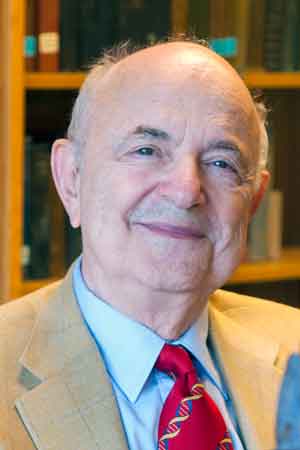Observation
Gottesman Receives Grawemeyer Award
APS Fellow and Charter Member Irving I. Gottesman, University of Minnesota, Twin Cities, has received the 2013 Grawemeyer Award for Psychology, designed to recognize outstanding ideas, and along with it a $100,000 prize. Gottesman, who helped to create the first academic program on behavioral genetics in the US, is an influential mental-health researcher in the area of models for exploring the causes of schizophrenia. His research on the genetics of schizophrenia has been instrumental in shaping how mental disorders are classified. The Grawemeyer Award recognized Gottesman’s “endophenotype concept in schizophrenia.”






Comments
My Grawemeyer Award has its roots in the research I have conducted with my late close friend James Shields going back to 1962 when we began our twin study of schizophrenia at the MRC Psychiatric Genetics Unit in London under Eliot Slater. Grawemeyer rules do not permit posthumous prizes,and Shields died in 1978 at the young age of 60.
The prize was given for the ideas we developed that led to our multifactorial polygenic threshold model for the transmission of schizophrenia (PNAS, 1967) and its generating of an endophenotype strategy to bridge the gap between genome and prodromal symptoms (Gottesman & Shields, 1972; Gottesman & Gould, 2003). Now, at age 82, I can counsel “patience” to my younger and deserving peers.
APS regularly opens certain online articles for discussion on our website. Effective February 2021, you must be a logged-in APS member to post comments. By posting a comment, you agree to our Community Guidelines and the display of your profile information, including your name and affiliation. Any opinions, findings, conclusions, or recommendations present in article comments are those of the writers and do not necessarily reflect the views of APS or the article’s author. For more information, please see our Community Guidelines.
Please login with your APS account to comment.